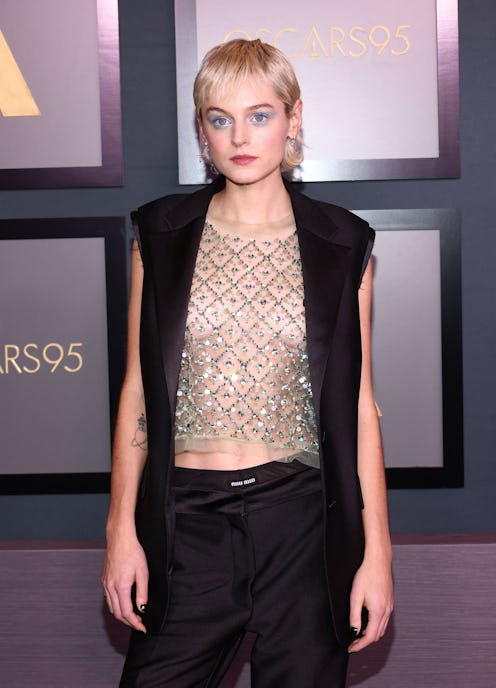Celebrity
Emma Corrin Got Candid About The “Hate” They Received For Being Non-Binary
“It was quite a reality check.”

Best known for playing Princess Diana in Season 4 of The Crown and most recently seen as the titular character in Lady Chatterley’s Lover, actor Emma Corrin has spoken out about the “hate” they received after they came out as non-binary. Speaking to Vanity Fair, Corrin recounted how they had decided to do an Instagram post on using binders, accompanied by a series of black-and-white photos that they described in the caption as a “very intimate, very new, very cool” experience. Corrin also changed their pronouns in their Instagram bio to “they/them.” However, they were shocked by the amount of backlash the post generated.
“Naively, maybe, it took me aback how much hate I got for that. It was quite a reality check,” they said. “But for a lot of people, it did help. Especially around conversation of gender and stuff, it does help a lot of people to see someone living as a non-binary person in the world. I know how much other people’s accounts helped me, that’s my motivation for keeping my social media at the moment.”
This was not the first time Corrin had made references to their gender identity publicly. In April 2021, they shared some photos from a wedding-themed shoot for Pop magazine, and captioned the post: “Ur fav queer bride.”
Corrin’s latest comments come after they spoke about gender neutral awards. “I hope for a future in which that happens," the actor told BBC. "I don't think the categories are inclusive enough at the moment.”
They continued: “It's difficult for me at the moment trying to justify in my head being non-binary and being nominated in female categories. When it comes to categories, do we need to make it specific as to whether you're being nominated for a female role or a male role?”
Following this interview, Corrin was unimpressed by the “clickbait” headlines generated by their comments. Taking to Instagram once more, they wrote: “When we talk about sexuality or gender we have to trust that the sensitivity of those conversations will be honoured in equal measure to the sensitivity in which these conversations will be represented.”